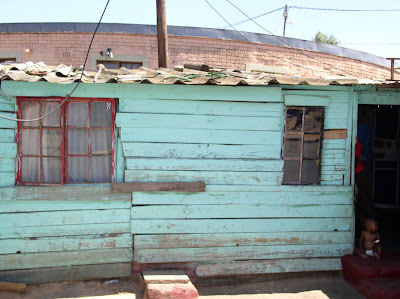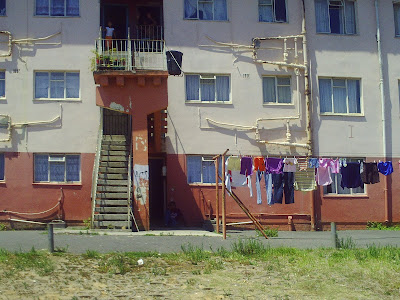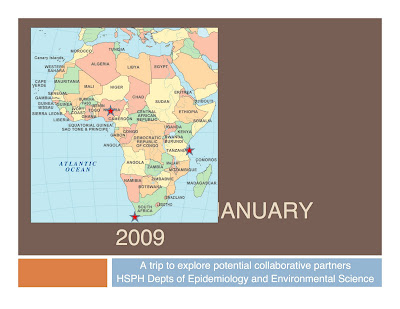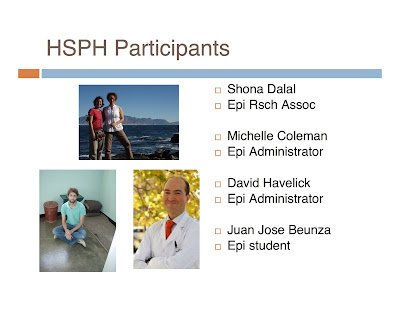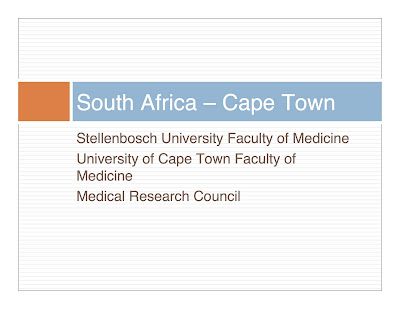
Heading to Rufiji district, David, Shona, Michelle and school boy (first leg on a ferry leaving Dar es Salaam)

Heading to Rufiji district (first leg on a ferry leaving Dar es Salaam)

Rural Tanzania, Rufiji district

Town of Ikewiriri, Rufiji district Tanzania

Ikewiriri dwelling

Leaving the rest stop facilities

The rest stop facilities (this was actually taken at the health center we visited. The rest stop facilities were adorned with hornet nests, lizards and many cobwebs. Charming!)
January 27, 2009
Notes on Tanzania
email message from sister Monique to mother, Carmen, describing our telephone conversation.
"I just hung up from Miss Shelly!
She is in Tanzania where the life expectancy is 47. The locals call her a "Muzenge" which means foreigner. She stands out like a sore thumb; because the locals either look African or European, but the blended folk come from somewhere else. They are working her from morning to night. Meetings begin at 8 in the morning, proceed non-stop throughout the day. She has no alone time as the entire group regroups for dinner. It was after 11pm when I spoke to her. They are 8 hours ahead and she was just getting ready for bed. She called me b/c she couldn't reach Pam. I am so glad to have to receive her call!
She described her experience of using the bathroom at a state of the art hospital. The toilet facilities are separate from the main structure; it was an outhouse covered in cob webs and populated by lizards and spiders and flies. They have been coached to carry their own toilet paper. Inside the outhouse, there was a hole in the floor. That was it. A hole, where she had to squat and aim. There was no running water, not to flush, or wash so she had to get it right the first time or she would be wearing it to the rest of her meetings throughout the day. I won't describe the process of trying to make it go down, you can use your imagination. We remarked how lucky she is to be traveling for work rather than born into those circumstances.
She sounded like she was in good spirits. She is flying to her third country tomorrow. Not sure where to; At $2.40 a minute on her global phone, I am sure that we will find out by email."
 entrance to Robben Island (where Mandela was jailed)
entrance to Robben Island (where Mandela was jailed) Mandela's cell
Mandela's cell View from Robben Island to Cape Town and Table Top Mountain
View from Robben Island to Cape Town and Table Top Mountain
 View from top of Table Mountain into waterfront
View from top of Table Mountain into waterfront Downtown Cape Town
Downtown Cape Town







